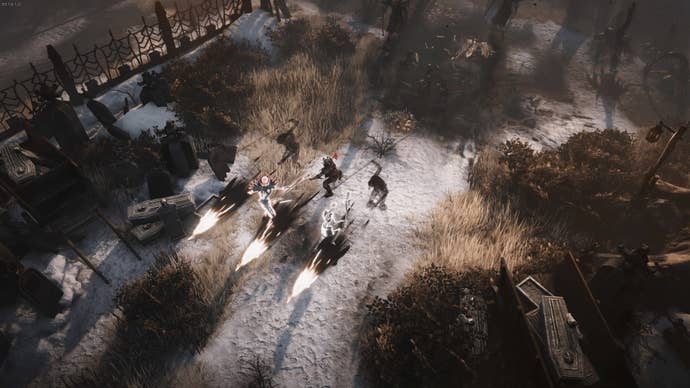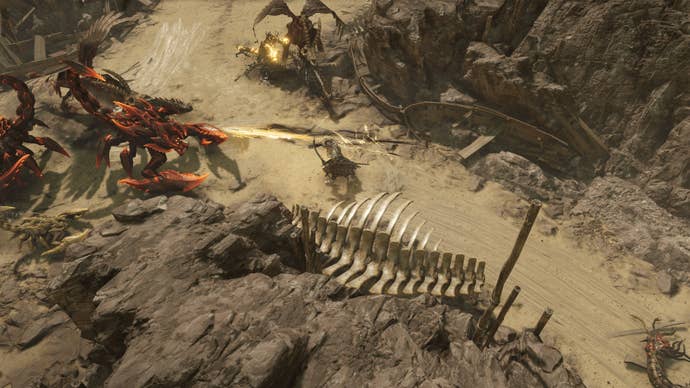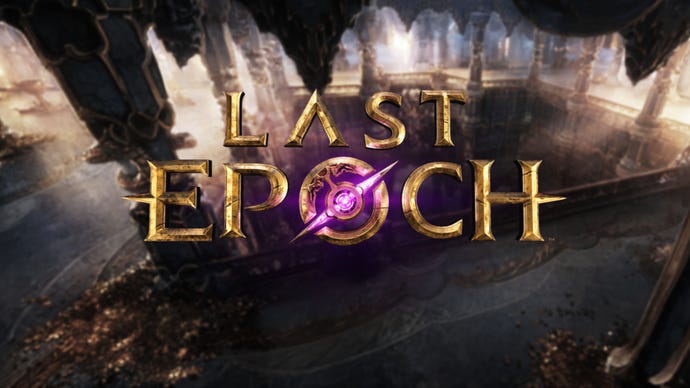Diablo 4 rival Last Epoch is finally out - but was it worth the wait?
Last Epoch is a clever ARPG with a lot of inventive solutions to long-standing genre problems, but it’s not quite all there.
Last Epoch is mere minutes away from release now, after having spent nearly five years in Steam Early Access. It is the debut title of the small team at Eleventh Hour Games, a developer who decided to take on the venerable genre of action RPGs with its first game. Last Epoch is, in no uncertain terms, coming for Diablo 4, Path of Exile, Grim Dawn, Wolcen: Lords of Mayhem (remember that?) and all the other ARPGs currently in the conversation. The latter two have been out for a while, so player sentiment there have pretty much settled.
Path of Exile remains popular with a core group of players who don’t get deterred by its unwieldy skill tree, outdated visuals and core combat that just can’t stack up to any of those other options. While we all wait for Path of Exile 2, the main game in ARPG town right now is Diablo 4. And boy oh boy has Blizzard been doing its damndest to make it undesirable right now, with poorly-thought-out Season 3 mechanics, and a rush of unusually greedy microtransactions and store bundles for a $70 game.
In a way, Last Epoch couldn’t have asked for a more favourable environment to release in. For better or worse, ARPGs feel stagnant right now; with a lot of known quantities chugging along, and barely any excitement on the horizon. I’ve been playing the 1.0 build of Last Epoch, as the game prepares to graduate out of early access and properly introduce itself to players who haven’t kept up with its journey thus far.
Last Epoch can be best described as a bridge between the classics (think Diablo 2), and the expectations, accessibility, and quality of life of modern games. But it doesn’t stop there, it’s also forward-looking in a way I can’t say I’ve seen in any ARPG before; with a lot of smart design ideas and ways around many of the hurdles a lot of those games can’t seem to ever avoid.
I’ve spent more time playing Diablo games than I have any ARPG; with over 250 hours into Diablo 4 since its release. It’s important to note this at the top, because that’s the game I am mainly going to be comparing Last Epoch to. This won’t always work, of course; there’s a vast gap between the two games’ budget and development time, not to mention team expertise and size. But what I’m trying to say is that all the hours I spent playing Blizzard’s flavour of ARPGs inevitably makes it my point of reference.

Doing more with less pretty much summarises a lot of what Last Epoch is good at. It’s not a very large game, but it has a clever setup that allows it to get a lot of use out of its world map. The game’s story centres around time-travelling devices, which allow the player (and other crucial characters) to traverse between different eras of its world, hence the name.
I found that, even though you’re traversing largely the same locations, they looked completely different, thanks to the massive gap in years – but also the major seismic events that took place over centuries. The Ruined Era, for instance is the game’s version of the apocalypse, and it’s a timeline where all the worst fears have come true.
The premise is intriguing and unique to the genre, even if I wish the plot had a lot more going for it than just the standard prevention of the worst timeline from coming to pass, and the cliche of using time-travel to prevent catastrophes... only to end up causing them.
This ethos also extends to gameplay. Last Epoch has five classes, which is a fine number on paper, until you remember that most classes in ARPGs are effectively off-shoots of one another. In reality, the game has 15 classes, because each of the five has three distinct Mastery specialisations, and you get to make that choice about of a couple of hours into the experience.
Each Mastery is, effectively, a different class. The Rogue for instance, starts as out as normal mix of close-range, fast attack flurries with the option of bow combat. It later unlocks the ability to be an even faster melee fighter with the Bladedancer, a refined ranger with the Marksman, or a pet class with the Falconer. Whichever one you pick, you get to retain the starting skills, but you also gain access to unique abilities only available in the Mastery tree you’ve chosen. You can learn about all the major skills before committing, though I wish the character panel offered video previews, too.

This is very much a game that wants to get you into the fun as quickly as possible. It doesn’t hold back on keeping legacy features that worked, and even expand on them in some cases. Last Epoch can be played offline or online. You can have as many stash stabs as your heart desires. The in-game guide is accessible at the press of a button, and offers simple explanations to the game’s many, many systems. You’re even able to respec quite easily, though your Mastery cannot be changed.
It’s also not precious about crafting and its required materials. You’re encouraged to experiment with the system quite early compared to most ARPGs, and the game smartly plants the seed by showing a Forging Potential rating on items to indicate that it’s probably in your best interest not to ignore crafting.
I’ve spent time with the Rogue and Sentinel classes, and I found the action less satisfying than I’d hoped. The world of Last Epoch just feels static. Breakable objects, for instance, are pre-determined, and the environment rarely reflects the oomph and weight of your attacks. Enemy animations can occasionally sell you on the power of your moves, but they still come across clunky compared to other ARPGs.

Though it’s meant to be a near-final build, I ran into several issues that required reaching out to the developer for some clarifications. Last Epoch has an incredibly detailed loot filter, but toggling it on stopped item tooltips from showing, so I went an hour without being able to pick up loot, until I disabled it. The developer suggested the Nvidia GeForce Experience overlay could be what caused this issue, and offered some solutions, but a normal player shouldn’t have to do that to make the feature work.
My biggest gripe by far is the fact enemies most often respawn upon your return from a portal trip to town. Really, everything in the level reloads (including destructible objects) after leaving and returning, which caused me to get ambushed by enemies the second I arrived, and made me want to skip them and return to my quest. This is especially frustrating when it happens with bosses, as you’re locked in the area until they’re defeated (again).
The other thing that really made it difficult to play my ranged Rogue is a bug that stopped left click from functioning as a move and attack button, which is my favourite way to play ARPGs. Last Epoch actually offers more ways to control which actions are taken upon clicking, more than I’ve seen in most games, but the option was disabled in a patch as it could break the ability to interact with anything. Again, this is a basic feature that most players will expect to be there in an ARPG, and while its absence may send some to seek help on Reddit or Twitter, most will likely think the game just doesn’t have it.
The level of polish here is unlikely to convince someone used to Diablo 3 or 4 to make the jump. Last Epoch truly shines when you see the depth of its features beyond those initial impressions, offering some that most competitors do not, but you have to get there to appreciate them. And if combat is not engaging enough, and you keep running into bugs, you’re not likely to stick with it.
Last Epoch is out now on PC via Steam. These impressions were written thanks to a code provided by the publisher.
